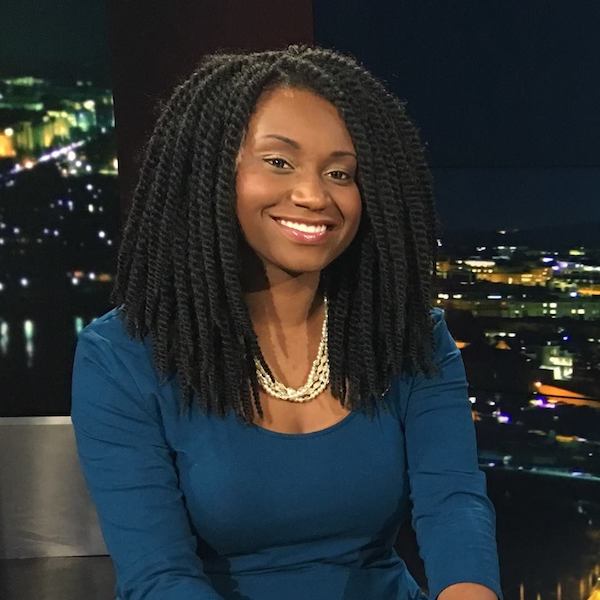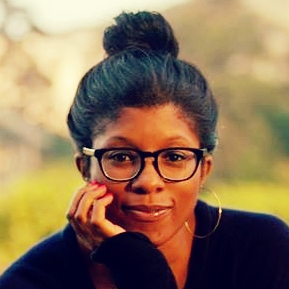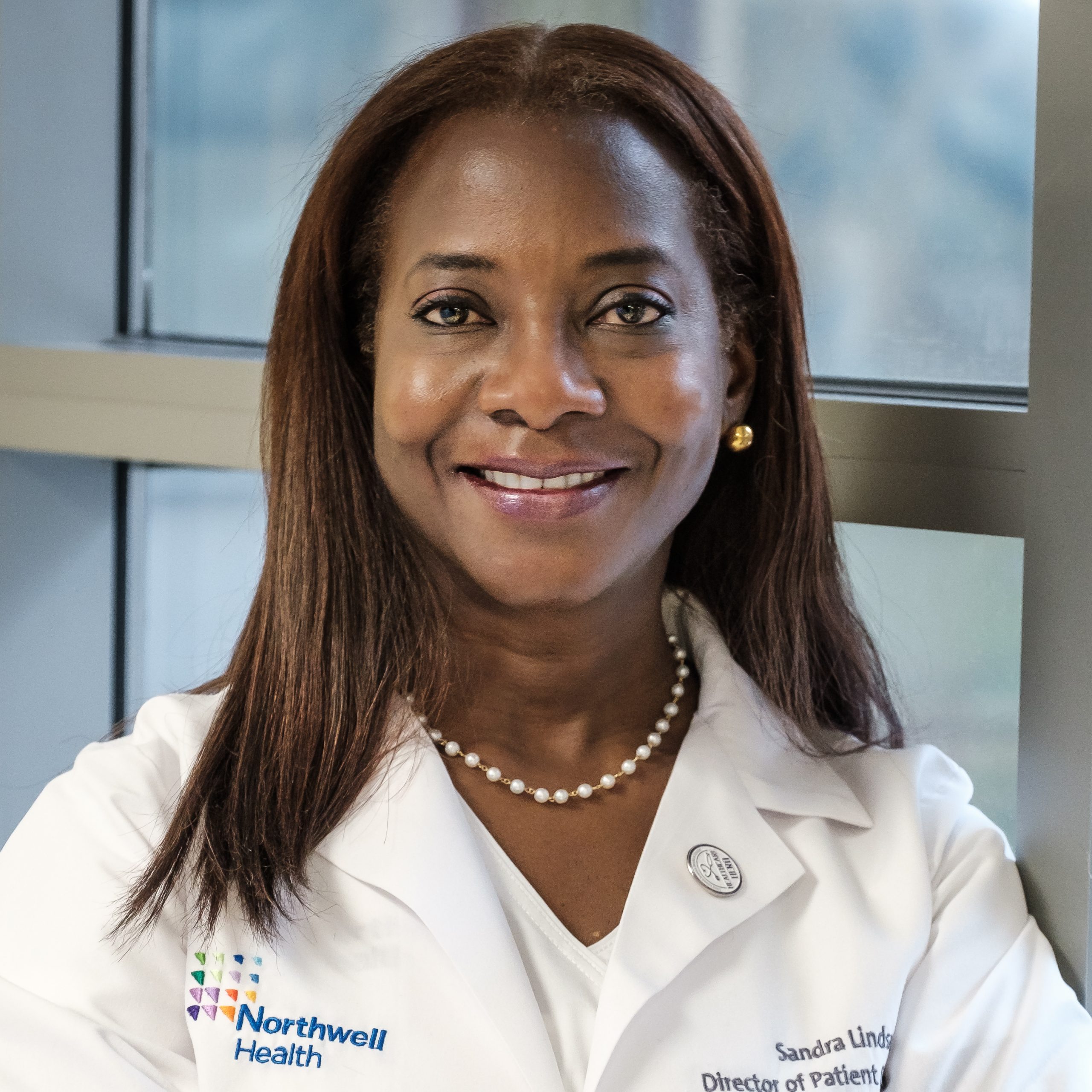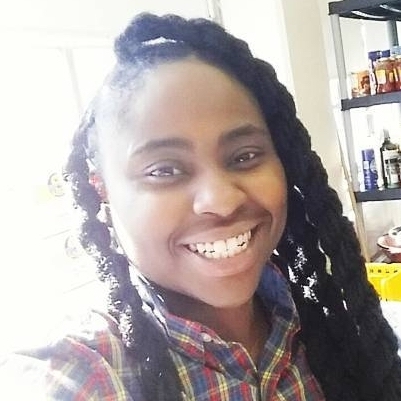S1E69: With Us, For Us — Black Healthcare Workers Speak Out About Vaccine Safety / Jessica Anne Mitchell Aiwuyor, Rhea Boyd, Sandra Lindsay, Tierra Rich
“This virus does not discriminate. The vaccine is what is going to help to get us out of this crisis and stop the depth and the harm and the pain, which is what we’re suffering two to three times more than our white counterparts.” -Sandra Lindsay
Reports show that Black Americans are less likely to get vaccinated than the general population but Black healthcare workers are taking on the mission to inform and hopefully convince more people of color to get vaccinated. We’ll hear where this outreach has fallen flat in the past and how Black healthcare workers are finding new ways to change hearts and minds about the vaccine.
This podcast was created by Just Human Productions. We’re powered and distributed by Simplecast. We’re supported, in part, by listeners like you.
Sandra Lindsay: The vaccine is what is going to help to get us out of this crisis and stop the death and the harm and the pain.
Jessica Aiwuyor: We can talk about misinformation all day, but until we provide information, trustworthiness and access, we’ll continue to have these problems.
Céline Gounder: You’re listening to EPIDEMIC, the podcast about the science, public health, and social impacts of the coronavirus pandemic. I’m your host, Dr. Céline Gounder.
Sandra Lindsay is the Director of Nursing for Critical Care at Long Island Jewish Medical Center. The hospital where Sandra works is in Queens, one of the New York City boroughs hardest hit by the pandemic.
Sandra Lindsay: Every day was just physically and mentally exhausting. Just seeing how hard people were working to save lives, seeing the number of patients that required our services… It was overwhelming.
Céline Gounder: Sandra says the virus was totally unpredictable. People who looked perfectly healthy would get COVID and die. It felt like no one was safe.
Sandra Lindsay: Every day, leaving home. I would look in the mirror. Last thing I did before I left home, and said, “I don’t know if I’m making it back home today.” I saw myself in just about any one of those patients in the bed.
Céline Gounder: Seeing this everyday gave Sandra a lot of clarity. She wanted to get vaccinated as soon as possible.
Sandra Lindsay: So I was always saying, Whenever this vaccine comes to market, I don’t care where it’s being given out. I’ve never gone Black Friday shopping or camped out at anywhere to get the first of anything, but I would camp out anywhere the vaccine was being offered.
Céline Gounder: Turns out, as soon as a vaccine was available… Sandra wouldn’t have to wait long.
Sandra Lindsay: I got the call that the vaccine was coming to Long Island Jewish Medical Center.
Céline Gounder: On December 14, 2020, Sandra showed up to work to get her vaccine.
Sandra Lindsay: It just so happened that I was, I was the first.
Céline Gounder: Sandra Lindsay was the first person in the United States to get a COVID vaccine outside of a clinical trial. It happened so fast, Sandra didn’t even get a chance to tell her mom before the media started calling.
Sandra Lindsay: She started getting calls from the press, um, for me. And then she called my brother, to say, “why are so many people calling here for Sandra? What is going on? Is she okay?” And that’s when he turned on the TV and realize the magnitude of what was happening
News clips:
This is a live shot, which we’re going to take a look at now, of the first vaccinations in New York.
She didn’t even flinch as Critical Care Director Sandra Lindsay made US history today. The first American to receive the COVID-19 vaccine in a non-trial setting.
A nurse in Queens got a round of applause when she got the first shot in the city.
I see Sandra Lindsay / Sandra Lindsay / Sandra Lindsay! /
And seeing an ICU nurse named Sandra Lindsay become the first American to get the shot is being compared to the greatest moments in our history.
Céline Gounder: Getting that vaccine changed Sandra.
Sandra Lindsay: Oh, it was like so much weight was lifted off my shoulders. I felt hopeful, a little safer. Um, the burden was a little lighter. I know that we are not totally out of the woods. But the light in the tunnel got a little brighter on that day.
Céline Gounder: But if vaccines are going to make the world safer for everyone, a lot more people need to get vaccinated, too. At this recording, fewer than 20% of people in the United States are fully vaccinated. And increasing rates of new infection and hospitalizations have some worried about a fourth wave. Sandra is a fierce advocate for COVID vaccines for everyone, and she’s using her position as a Black healthcare worker to reach out to others in her community who have questions about the vaccine.
Sandra Lindsay: We have to be nonjudgmental and, um, culturally humble. Because for some people it’s history, that still looms darkly over them. For some it’s a knowledge deficit. For some it’s just that they’ve been so heavily influenced by the misinformation and the conspiracy theories that are out there. So you really have to take time to assess and engage in conversations with people as to why they are so anti COVID-19 vaccine.
Céline Gounder: In this episode, we’re going to hear from Sandra and other Black healthcare workers who are taking on the mission to inform and — hopefully — convince more people of color to get vaccinated. We’ll hear where this outreach has fallen flat in the past…
Rhea Boyd: When we look actually historically just at children’s vaccinations, we see that Black caregivers vaccinate their kids and that the barrier to them doing that in the past was actually common barriers like cost.
Céline Gounder: How Black healthcare workers are finding new ways to change hearts and minds about the vaccine…
Tierra Rich: I wanted people to, to dialogue in a public space along with me.
Céline Gounder: And what needs to happen next…
Jessica Aiwuyor: And this is the perfect time to keep pushing forward, to make sure that our communities get the healthcare that we deserve.
Céline Gounder: Today on EPIDEMIC… Black healthcare workers speak out about vaccine safety.
Reports show that Black Americans are less likely to get vaccinated than the general population. Seeing these numbers has led some to say Black Americans are QUOTE “vaccine hesitant.”
Rhea Boyd: My issue is that we have been misapplying that term to Black folks.
Céline Gounder: This is Rhea Boyd. She’s a pediatrician and public health advocate.
Rhea Boyd: Rather, they’ve shared legitimate questions and concerns that they have about the process by which the current COVID vaccines were developed, whether the vaccines themselves, they’re safe. And some folks just have questions about whether they’re affordable.
Céline Gounder: Rhea says that when you look at the data, Black Americans are just as likely to get vaccinated as other groups. A program in the 1990s to eliminate disparities in childhood vaccinations shows how.
Rhea Boyd: I was so thrilled to be able to share this data as a pediatrician. Back in the 1990s, our national government in the U.S. said, we know that there are disparities and who has access to vaccination there’s disparities based on children’s insurance level. There’s disparities based on children’s, you know, income and socioeconomic background. And there’s really persistent disparities around children’s racial and ethnic background.
Céline Gounder: The federal government created the Vaccines for Children program to address these disparities. This program makes sure any child can get vaccinated for free.
Rhea Boyd: Quickly, the program started to narrow racial health disparities and who had access to children’s vaccines and then, since 2005, for the last 16 years, there have been no disparities in who has access to really critical, commonly recommended children’s vaccines.
Céline Gounder: The program covers vaccines required for public school attendance in the United States. Vaccines for diseases like measles, whooping cough, and polio.
Rhea Boyd: So some folks might say, well, of course, black folks get the MMR and polio vaccine because many school districts, across the country required that vaccination, but that’s not the same. It’s not the same case for the HPV vaccine.
Céline Gounder: HPV or human papilloma virus is a common infection that can increase the risk of cancer in both men and women. The CDC recommends anyone between the age of 11 and 26 get this vaccine. But because HPV is sexually transmitted, there has been pushback from some parents, and it’s not required by public schools.
Rhea Boyd: And so even for the HPV vaccine, we see rates of vaccination for Black children that’s like 95% or above and little to no racial health disparity and who has access to that vaccine. And so when we look actually historically just at children’s vaccinations, we see that Black caregivers vaccinate their kids and that the barrier to them doing that in the past was actually common barriers like cost.
Céline Gounder: Rhea says there are other barriers to Black Americans getting vaccinated besides costs. She points to the seasonal flu vaccine as one example.
Rhea Boyd: For Black folks in particular, only about 4 in 10 ended up getting the flu vaccine every year. Whereas nationally it’s a little bit higher, maybe 50 to 60% of adults get the flu vaccine. But actually when you look at Black adults aged 65 and older who have Medicare Part B, which is a health insurance plan that covers a number of vaccines, the number one thing that shapes whether folks get the flu vaccine, Black folks get the flu vaccine, is if their provider just simply offers it to them. What they found is that when providers offer the flu vaccine to Black adults, they’re just as likely to get it as any other racial and ethnic group. And that data sits upon decades of data that told us that providers who predominantly serve a Black patient populations, they are the least likely to recommend preventative services to Black patients, including vaccination.
Céline Gounder: Why would a provider not offer Black patients a flu vaccination at the same rates as they do other patients?
Rhea Boyd: You know, why would a provider not offer routine screening mammograms to Black women, despite the fact that we know Black women have higher mortality rates when it comes to breast cancer, despite not having a higher incidence of breast cancer. Why wouldn’t doctors offer children who come in with broken limbs pain medication at the same rate that they would offer a white patient? I mean, these are the challenging questions that we have to start to confront in healthcare, because they’re all a manifestation of how racism shows up.
Céline Gounder: Rooted in this is the kind of healthcare available to many Black people in the United States.
Rhea Boyd: Often it shows up kind of structurally baked into how systems that serve predominantly Black populations are under-resourced to actually address their needs. So perhaps providers might not offer it if they’re rushed during the visit, because they have to see so many patients in a day. So perhaps they don’t get time to actually deal with preventative services. They’re really just offering people crisis care.
Céline Gounder: Cost and lack of access to quality preventive care have been big hurdles to vaccination among Black Americans. Rhea says that until our healthcare system acknowledges these disparities, debates about vaccine confidence can only achieve so much.
Rhea Boyd: We have spent, as a healthcare system, tens of millions of dollars on trying to address vaccine hesitancy, quote unquote, in Black communities, instead of actually getting to the root of the problem, which is that folks need access to the vaccines and they need access to credible information about the COVID vaccines.
Céline Gounder: We’ll hear how Rhea and other Black healthcare workers are helping provide accurate information that speaks to their community’s concerns. That’s after the break.
* * *
Céline Gounder: Combating misinformation about vaccines has been a struggle for public health officials during the pandemic. It takes a lot of work to craft the right message to reach all the different communities in the United States. Jessica Anne Mitchell Aiwuyor has been tracking these efforts among Black Americans.
Jessica Aiwuyor: Black healthcare workers have really done an excellent job of taking control of the narrative and spending a lot of, a lot of time and energy in providing the information and the answers to the questions that people have.
Céline Gounder: Jessica’s also the founder of the National Black Cultural Information Trust. It’s an organization dedicated to improving online access to information about vaccines and countering misinformation.
Jessica Aiwuyor: It’s not just misinformation that’s the problem. It’s under-communication that’s also a problem.
Céline Gounder: The under communication Jessica mentioned means people aren’t getting the answers to their questions from official sources.
Jessica Aiwuyor: Different people attempt to answer those questions based on the information that they find available and that information isn’t always accurate.
Céline Gounder: So Jessica has been following the efforts of Black healthcare workers to provide accurate information.
Jessica Aiwuyor: One of the things that they have been doing is making Twitter threads about how people can fight back against the virus, how people can protect themselves. They’ve entered into new social media spaces like Clubhouse.
Céline Gounder: If you haven’t heard of it, Clubhouse is a social media platform that uses audio as its main medium instead of text or pictures like you’d see on Facebook or Instagram. People create spaces called rooms where others can join and talk about a topic.
Jessica Aiwuyor: There are many great conversations happening on there about culture, about life, about health, about business, but what can also happen on, on the app and has happened frequently is some people will create a room and not have the correct information about a subject.
Céline Gounder: Sometimes this misinformation gets out of control.
Jessica Aiwuyor: I do know that there has been bullying that has taken place on that app towards certain Black health care workers. I do know that for sure.
Céline Gounder: Jessica doesn’t condone that behavior, but she says she understands that people see COVID — misinformation and all — as a life and death issue.
Jessica Aiwuyor: It’s actually an issue of saying things that are simply not true about COVID-19, or about the vaccines. And this harmful information then goes to hundreds or thousands of people within a short amount of time, with little to no moderation.
Rhea Boyd: And so when we saw that we were like, you know, we need to create a campaign that at least in part lives on the internet. So that right where the disinformation lives, we can create a credible rabbit hole people can go down regarding their questions.
Céline Gounder: The result was a campaign called the Conversation Between Us About Us. Rhea Boyd was one of the co-founders of the partnership between the Black Coalition Against COVID and the Kaiser Family Foundation.
Rhea Boyd: Which is a national campaign created by Black healthcare workers for Black communities to learn about the growing evidence that tells us the COVID vaccinations are safe.
Céline Gounder: The campaign is a collection of 50 short videos that answer common questions about COVID and the vaccines. The videos are hosted by stand-up comedian and TV host W. Kamau Bell.
Kamau Bell: The vaccine happened fast, like super fast, like Usain Bolt running to the bathroom fast. Is that something we should be concerned about?
Rhea Boyd: Kamau was able to hold both the seriousness of this conversation, you know, Black folks have certainly suffered inordinately during this pandemic, but also the levity that we have when we are already having these conversations just casually, informally in our kitchens, our living rooms, barbershops, just between us, as people.
Kamau Bell: What about side effects?
Guest: Soreness from the injection site.
I had a little bit of arm soreness.
Kamau Bell: Arm soreness? Is that a side effect? My arm’s sore right now.
Rhea Boyd: And so we wanted to just say, we know we’re already having these conversations and we, as Black healthcare workers know that, you know, Black folks don’t always have direct access to a healthcare provider to be able to ask their questions. So we wanted to just be able to say, we hear y’all and we’re talking just to you.
Kamau Bell: Thank you, doctors. Alright, I’ll let you get back to work and thank you for allowing me to ask you these questions.
Céline Gounder: Black doctors and scientists have an important role when it comes to informing their communities and the public. But stories about people’s individual experience with the vaccine can go a long way too.
Tierra Rich: My name is Tierra Rich. I am an educator and activist from Washington, D.C. who resides in Philadelphia, Pennsylvania.
Céline Gounder: Tierra is a sexual health educator in Philadelphia schools.
Tierra Rich: My job was basically saying, “hey, the school’s probably gonna open back up, and we’re going to probably need you to go back in there.” And just like anybody else, I was like, “Oh, I’m pretty scared to go back in there without being vaccinated.”
Céline Gounder: Tierra asked her doctor about the vaccines. Then, Tierra spoke with a cousin who works in the pharmaceutical industry.
Tierra Rich: And during Thanksgiving Zoom, he was able to basically educate my family on the Pfizer vaccine. It was very interesting where I wanted to say, “All right, let me go do my own research.”
Céline Gounder: Tierra learned about the negative aspects of American medical racism. But she also found positive stories, too. One thing Tierra learned in her research was the story of an enslaved man from West Africa named Onesimus.
Tierra Rich: I did not know about Onesimus growing up actually.
Céline Gounder: Onesimus is credited with introducing the concept of variolation to the United States. Variolation was a precursor to vaccination and helped protect many from smallpox.
Tierra Rich: So this is not something that has been talked about widely in the Black community, definitely something that I think we should teach more of.
Céline Gounder: So, when the time came, Tierra felt confident about the vaccine.
Tierra Rich: So I thought about it long and hard, and I discussed it with my partner, and I decided to go and get the shot.
Céline Gounder: She got the Pfizer vaccine on Christmas Eve, 2020. But then Tierra decided to do something else.
Tierra FB Live: I’ll tell y’all what I experienced today, what I didn’t experience today, and what y’all can expect if you take the COVID-19 vaccination, okay? So…
Céline Gounder: She went on Facebook Live to broadcast her experience.
TierraFB Live: What I’m gunna say is, I feel great. I don’t feel bad. My arm is a little sore or whatever, but, I don’t feel like I’m sick. I don’t feel shortness of breath, I don’t feel a headache, um, my body doesn’t hurt. I don’t feel tired. Yeah, it was good. I’m here to answer any questions. I have another dose to go…
Céline Gounder: When people saw Tierra’s video they listened.
TierraFB Live: Stay up off this, this here internet, and reading people’s comments, because baby we be reading comments that aint’ even pass 7th grade science class, okay? So we gotta be careful with who we listenin’ to on this here internet, uh, good ol’ internet alright? So I would say: knowledge is power. Your mind is your strongest tool. And your body. For real. So use it.
Céline Gounder: Tierra says she had several friends who said they did not want to get the vaccine. But then they saw her video.
Tierra Rich: And they say, you know, just seeing you go through it, and you talk about it more openly, makes me want to go get it. And I’ve seen probably about, about five, six people who’s, who’ve gotten it, um, because they, they watched my video. So it’s super important for us to be out here in healthcare, because we are also educated in these things, um, and we’re aware. It takes sometimes someone who looks like you, but also aware, to actually communicate with you.
Céline Gounder: Sandra Lindsay, the nurse who was the first person to get vaccinated in the United States, agrees.
Sandra Lindsay: The only way to do this and to get people off the fence and get vaccinated, is to present the facts, share the experience. If I alone do it or only a few people do it, it doesn’t help the population. It doesn’t help us eradicate COVID-19. We need much more of the population to get the vaccine before we can all be safe.
CREDITS
EPIDEMIC is brought to you by Just Human Productions. We’re funded in part by listeners like you. We’re powered and distributed by Simplecast.
Today’s episode was produced by Zach Dyer and me. Our music is by the Blue Dot Sessions. Our Production and Research Associate is Temitayo Fagbenle. Our interns are Annabel Chen, Bryan Chen, Julie Levey, and Sophie Varma.
If you enjoy the show, please tell a friend about it today. And if you haven’t already done so, leave us a review on Apple Podcasts. It helps more people find out about the show!
Follow EPIDEMIC on Twitter and Just Human Productions on Instagram to learn more about the characters and big ideas you hear on the podcast.
We love providing this and our other podcasts to the public for free… but producing a podcast costs money… and we’ve got to pay our staff! So please make a donation to help us keep this going. Just Human Productions is a 501(c)(3) non-profit organization, so your donations to support our podcasts are tax-deductible. Go to justhumanproductions.org/donate to make a donation. That’s justhumanproductions.org/donate.
And if you like the storytelling you hear on EPIDEMIC, check out our sister podcast, AMERICAN DIAGNOSIS. On AMERICAN DIAGNOSIS, we cover some of the biggest public health challenges affecting the nation today. Past seasons covered topics like youth and mental health; the opioid overdose crisis; and gun violence in America.
I’m Dr. Celine Gounder. Thanks for listening to EPIDEMIC.
END








